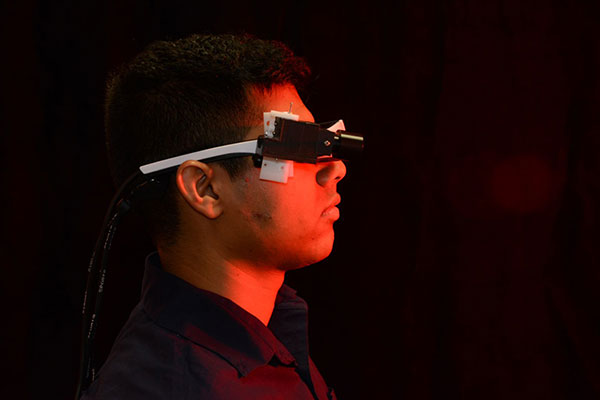It's easy to start your application.
Master's & Certificate Programs
Graduate Certificate in Imaging Science & Engineering

A certificate program in Imaging Science & Engineering (IS&E) is offered jointly by the departments of Electrical & Systems Engineering, Computer Science & Engineering, and Biomedical Engineering.
Built on the strengths in imaging science throughout the university, this multidisciplinary program is constructed to expose students to the breadth of imaging research activities at Washington University. The requirements of the program vary by department, but are flexible in allowing students and their advisers to construct academic programs ideally suited to complement their individual research programs. Students in the program are brought together for a joint seminar course, and all students engage in a practicum in imaging science and engineering.
Entering and Completing the Program
Graduate students in participating departments may apply for admission to the IS&E program. Admission requires graduate standing in a participating department, a demonstrated interest in aspects of imaging, and approval of the program director.
Upon being awarded a graduate degree by their home department and completing certain requirements of the program, students are awarded a certificate indicating their successful participation in the IS&E program in addition to having completion of the certificate program posted on their official transcript. The requirements for receiving a certificate are acceptance into the IS&E program, completion of four imaging courses approved by the program director, completion of the requirements for a graduate degree in the student's home department, and participation in the IS&E seminar required for all students in the IS&E program.
Seminars by faculty in imaging science, others at Washington University, and experts from outside the university convey new developments and directions in the field of imaging science and its applications. These seminars also provide the opportunity for interactions among those involved in the program.
Courses of Instruction
Fundamentals underlying imaging science and engineering and the application of these fundamentals to contemporary problems of importance form the theme of the program. Relevant courses come from across the university. The program is flexible, allowing students — in consultation with their advisors and the program director — to design a program that is best for them. Below are representative courses that students in the program take.
Required seminar for Certificate
- ESE 5980 Seminar in Imaging Science and Engineering
- Or ESE 5981 Seminar in Imaging Science and Engineering
- Or Physics 5960 Research
Courses in the Imaging Sciences Pathway in the Division of Biology and Biological Sciences
- BME 5300 Molecular Cell Biology for Engineers
- ESE 5890 Biological Imaging Technology
- Or BME 5890 Biological Imaging Technology
- Biol 5068 Fundamentals of Molecular Cell Biology
- Biol 5146 Principles and Applications of Biological Imaging
- Biol 5147 Contrast Agents for Biological Imaging
- Or Chem 5147 Contrast Agents for Biological Imaging
- ESE 4380 Applied Optics
- ESE 5200 Probability and Stochastic Processes
- ESE 5240 Detection and Estimation Theory
- ESE 5820 Fundamentals and Applications of Modern Optical Imaging
- ESE 5890 Biological Imaging Technology
- ESE 5931 Mathematics of Imaging Science
- ESE 5932 Computational Methods for Imaging Science
- ESE 5933 Theoretical Imaging Science
- ESE 5972 Practicum in Imaging Science
- ESE 5980 Seminar in Imaging Science and Engineering (required)
Courses in Computer Science & Engineering
- CSE 5107 Machine Learning
- CSE 5406 Computational Geometry
- CSE 5504 Geometric Computing for Biomedicine
- CSE 5515 Computational Photography
- CSE 5509 Computer Vision
Courses in Biomedical Imaging
- BME 4940 Ultrasound Imaging
- ESE 5981 Seminar in Imaging Science and Engineering (required)
- BME 5300 Molecular Cell Biology for Engineers
- BME 5700 Mathematics of Imaging Science
- BME 5820 Fundamentals and Applications of Modern Optical Imaging
- BME 5890 Biological Imaging Technology
- BME 5910 Biomedical Optics I: Principles
- BME 5920 Biomedical Optics II: Imaging
- BME 5940 Ultrasound Imaging
Courses in Chemistry, Physics and Psychology
- Chem 4035 Nuclear and Radiochemistry Laboratory
- Chem 4036 Introduction to the Atomic Nucleus
- Chem 5061 Magnetic Resonance
- Chem 5762 Electron Spin Resonance and Dynamic Nuclear Polarization
- PHYS 5890 Selected Topics in Physics I
- PHYS 5901 Seminar-Physics of Ultrasonic Imaging in Cardiovascular Medicine
- Psych 4450 Functional Neuroimaging Methods
